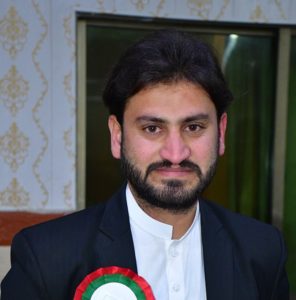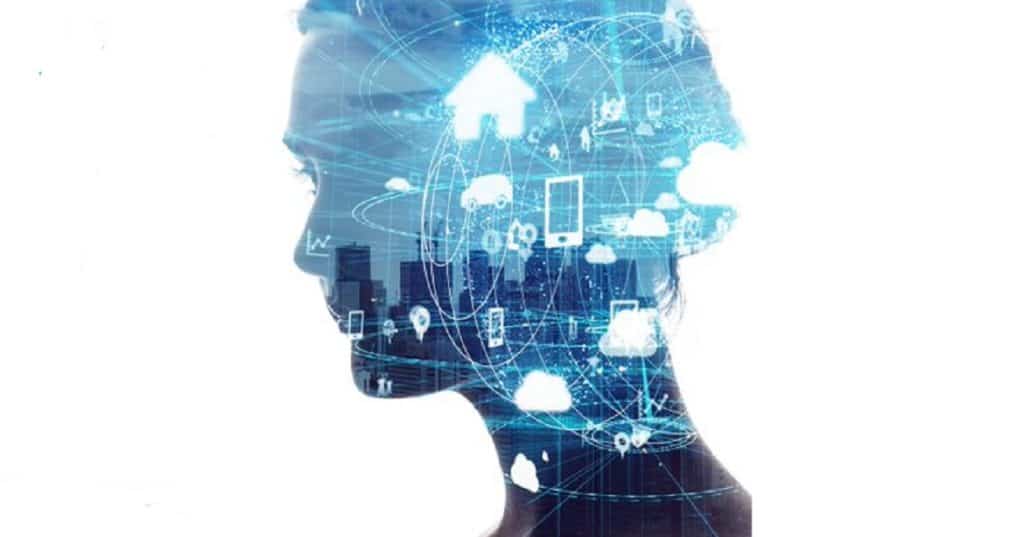By Abdul Qayum Burki
In the modern world, each and every concept changes with the passage of time. Every system and concept improves its shortcomings whether it’s political, economic, social or technological. Democracy is not a system but it is a set of values that change with the passage of time and according to the needs of a society.

The concept of E-Democracy or Digital Democracy has emerged with the emergence of Information Technology in the 21st century. Use of IT in political affairs of a state has now become an essential part. Democratic values expand due to digital democracy. But we still have an unfortunate region which is still unaware from all such developments, I mean the erstwhile FATA. Basic needs like Electricity, sanitation, and water are the common problems that no one pays attention to. But in my view, the major problem from all those basic needs is the internet. The Internet is that special need which can lead the people of Tribal Districts from Classical tribal society to modern society based on Digital Democracy.
Things can be changing in the most underdeveloped regions of Pakistan by using IT and particularly the internet. The mindset of the masses can be reshaping and brought in the national mainstream. The people from ex-FATA cannot participate in political and economic affairs in that way as the people from the rest of Pakistan can. Different developmental projects have been launched by the previous government but the people from FATA cannot participate just because they have no internet facility. Kamyab Jawan Program was one of the successful programs by the PTI government which can help the youth to learn skills and become empowered economically. But due to non availability of the internet in the region, no one can benefit from such a program.
The peoples of FATA are no doubt very conservative regarding their women, so their participation is almost zero in the political affairs. Economically too they have no opportunity, but the introduction of Digital Democracy can play a role. Women can empower and opportunities can be created. I remember, after 12th I cannot apply to those universities where I was interested to study just because I have no internet and cannot collect information regarding the admission process and the last date of application. During Covid-19, most of the students from erstwhile FATA freeze their semesters just because they have no access to the internet. I emphasize the internet because it is the very base of Digital Democracy.
The Internet is like the base of a building where the construction is going on. Digital Democracy is the way to Humane Governance, but the people from the tribal belt are not moving in that direction. Citizen Portal is an app established by the previous government for the sake of quick response to the problems faced by masses. One can easily put a complaint against any institution and individual that acquires a public post. In the absence of technology and internet connection, no one can use the app and complain against any individual (government servant) or institution. Such kind of inaccessibility leads to frustration. Frustration puts the writ of a state on stake, and we are observing it since the previous couple of decades in erstwhile FATA.Covid-19 has given acceleration to the process of E-Democratization. The future of politics seems to revolve around Information Technology. If we fail to integrate politics with IT and the internet I would say it will be disastrous.
Here I would also mention the role of local elites called Maliks. This stratum of the tribal community is not playing an attractive role. Ban upon cell phones and prohibition of technology are those common decisions the elite class take for the so-called benefit of society. Their conservative mindset doesn’t accept such kind of developments, because it directly links and threatens their self interest. For a successful and prosperous Ex-FATA, it is necessary to introduce reforms supporting E-Democracy/Digital Democracy.
Improvement and reforms are necessary on emergency basis. Law and Order matter too much in democracy. Writ of state challenge when law and order become weak. Before 25th amendment of the constitution, there was no police force or any other law and order maintaining force in the tribal belt. Only Khasadar force were exist which was limited to secure bridges, roads and other governmental premises. Khasadar force was established by Britain to secure their interest in the erstwhile FATA. Recently this force has been merged in KPK police. The status of Police in the newly merged districts is shabbiest. In April, around 15 policemen were captured by insurgents. The members of the banned organization taken all weapons from the police man and make them hostage. Not only taken the weapons but all other equipments and cell phones. The weapons returned few days later. Pakistan army claimed that they had taken the weapons from TTP insurgents after an operation. Such kind of police can do nothing for law and order maintenance, which directly puts democracy at risk.
The condition of health facilities is not too much different from police. Premises of health and education are there but no activity exists. Very few staff performs their duties. Most of the premises of education like School and colleges are under the use of the security forces. Legal status has given to the use of school and college building under the law called Action in Aid of Civil Power. Such kind of activities is not giving good psychological effect to the students. Students feel that they are like in a security state.
Another most important matter that creates a heardal in the establishment of Democracy (that leads to Digital Democracy) is the Bureaucracy. Before the 25th Amendment of 1973 constitution, the affairs of the Tribal Area was dealt with by a bureaucrat of Pakistan Civil Services called Political Agent. The Political Agent was empowered to deal with the tribal area elites called Maliks. Comparatively, a Political Agent was a BPS-17 grade officer like Deputy Commissioner, but there was a difference in their designation. The Political Agent was not only executing the laws but he was also empowered to play the role of judiciary.
So, the root of democracy does not strengthen in the tribal area. The masses lose the confidence in the state as the scalewort for the masses was the Political Agent. There was a special kind of relationship between Pakistan and the newly merged tribal area. The tribal areas were run under Revaj. The control of the state was only up to the government assets like governmental infrastructure that was roads, bridges and different offices. People were solving their problems under the Jirga system. The state of Pakistan was providing them special kinds of exemptions. The people were exempt from taxes. There was no police force. Citizens from FATA were not allowed access to the High Court and Supreme Court. These are all the components that at first lead us towards actual democracy and then use of modern means and ways to establish Digital Democracy. Fortunately, the tough stage of transformation is going on, which will resultantly lead to the development of the Tribal Districts.
If we fail to compete with the world while not accepting contemporary changes we will be eliminated automatically. It is necessary to digitize Pakistan so that we can survive and compete internally as well as externally.
Abdul Qayum Burki is a student of BS-Hons (Political Science), Department of Politics and International Relations. He has expertise in Taliban, Terrorism, Extremism and Security Studies.
(The views and opinions expressed in this article are only of the authors and do not necessarily reflect the views, opinion or position of World Geostrategic Insights).







